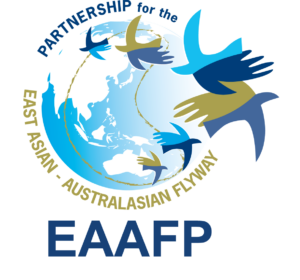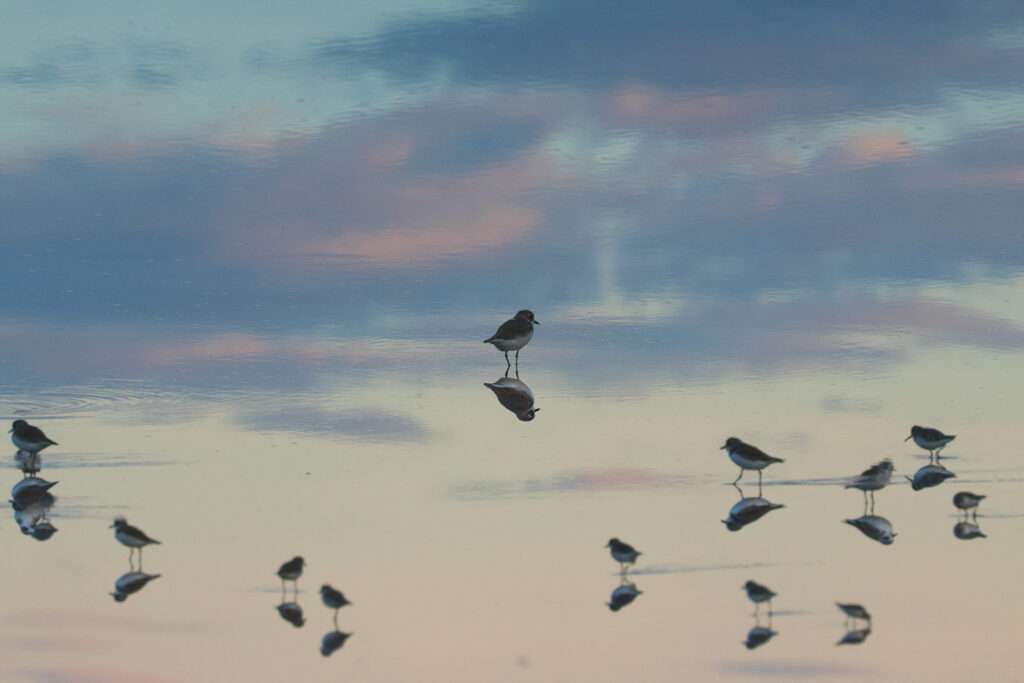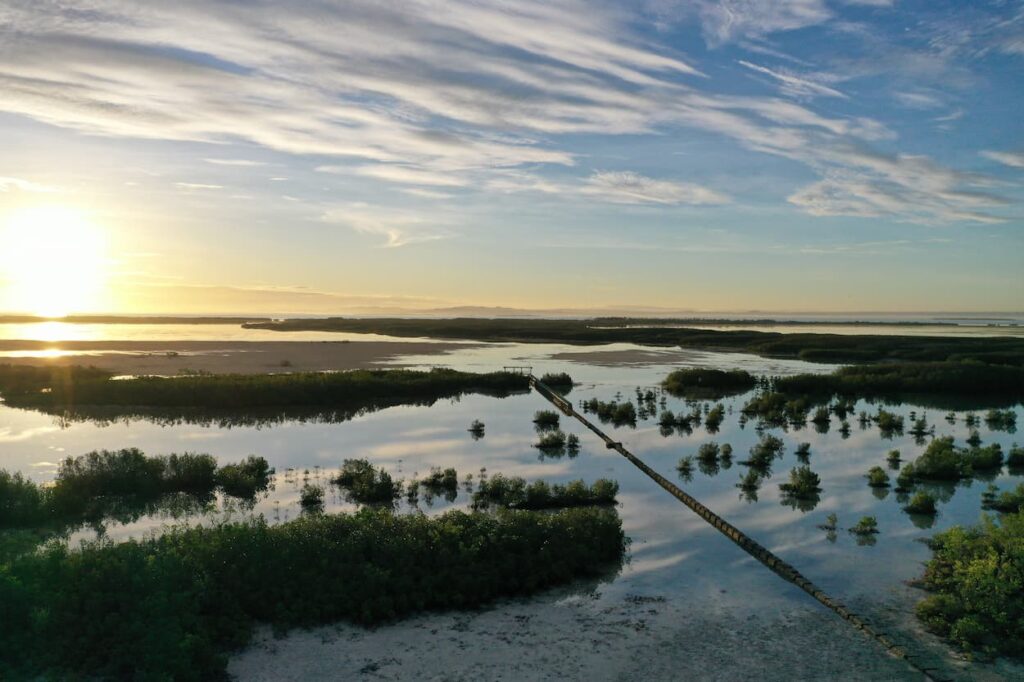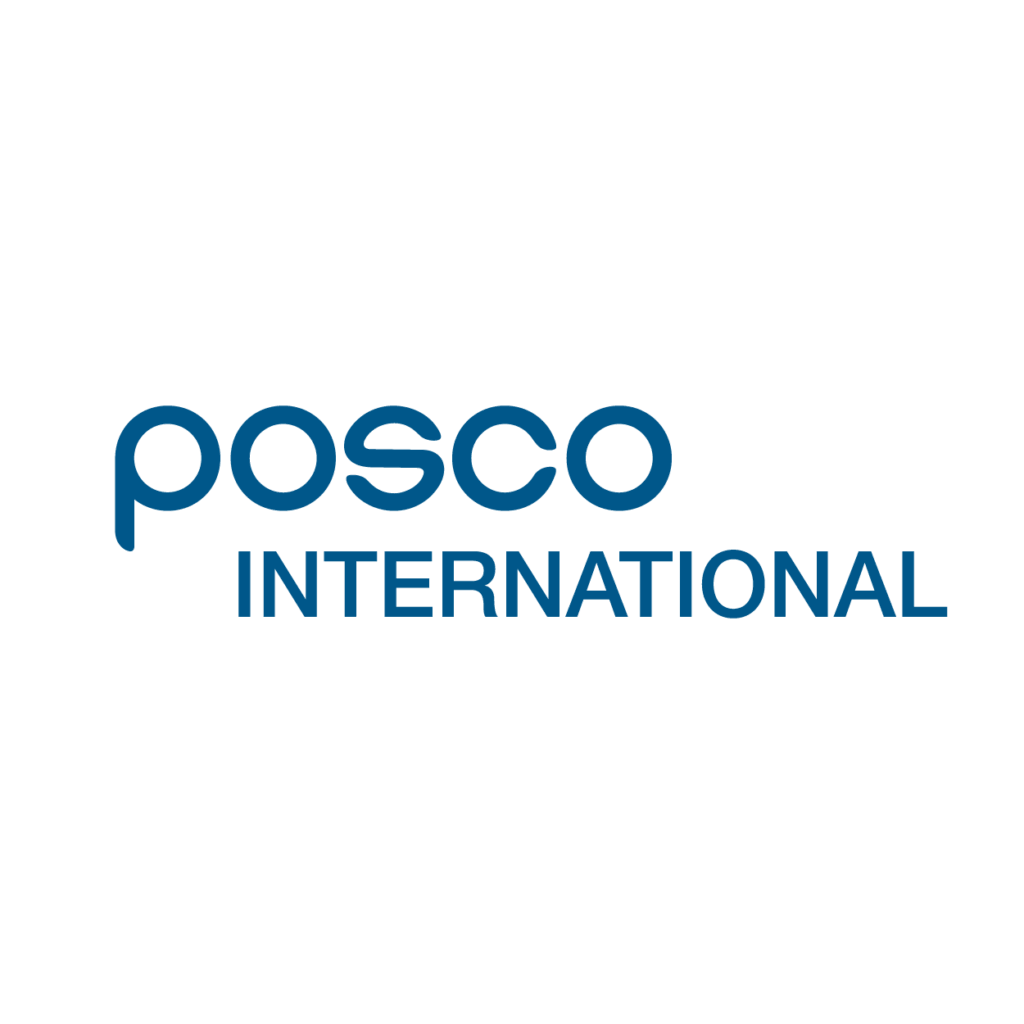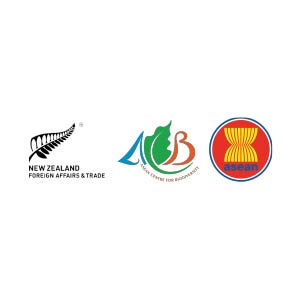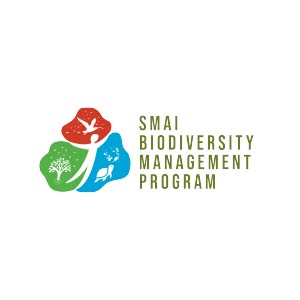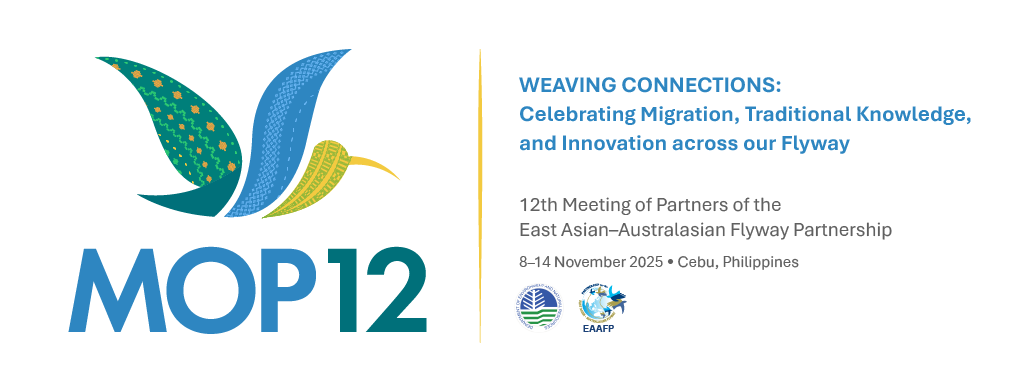
Hosted by the Department of Environment and Natural Resources (DENR) of the Philippines in collaboration with the Secretariat of the East Asian–Australasian Flyway Partnership (EAAFP), the 12th Meeting of Partners (MOP12) is set to take place from 8 to 14 November 2025 in Cebu, Philippines.
This biennial event serves as a vital platform for our Partners to come together to review progress towards the Strategic Plan, chart the Partnership’s future direction, and strengthen our shared mission. It also offers a unique opportunity for Flyway Site Managers, Working Groups, and Task Forces to exchange experiences, forge new collaborations, and strategise actions.With the theme “Weaving Connections: Celebrating Migration, Traditional Knowledge, and Innovation across our Flyway,” the gathering embodies the spirit of uniting diverse communities, fostering scientific innovation, and honouring shared traditional knowledge across the Flyway.
